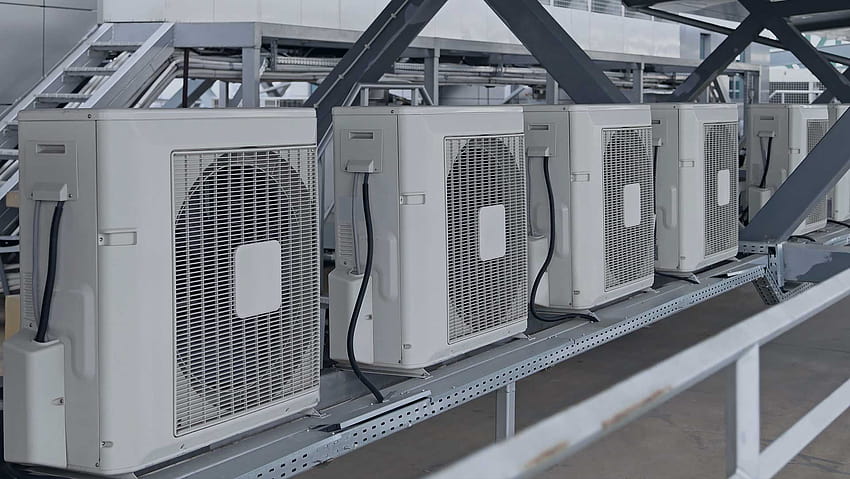Climate Control Chronicles: Mastering Your Home's Heating and Cooling
Climate Control Chronicles: Mastering Your Home's Heating and Cooling
Blog Article

In today's world, maintaining a comfortable home environment is more important than ever. With fluctuating temperatures and changing weather patterns, having an efficient heating and air conditioning system is essential for ensuring your family feels cozy during winter and refreshed in the summer. Yet, many homeowners often find themselves perplexed by the intricacies of their systems, leading to frustration and uncertainty when it comes to adjustments and maintenance.
Mastering your home's heating and cooling is not just about comfort; it also plays a significant role in energy efficiency and cost savings. Understanding how to optimize these systems can significantly impact your energy bills while also contributing to a more sustainable lifestyle. In this exploration of heating and air conditioning, we will unravel the essentials of managing your climate control systems, so you can enjoy a home that's perfect all year round.
Understanding HVAC Systems
Heating, ventilation, and air conditioning, commonly referred to as HVAC, represents a critical component of modern home comfort. These systems are designed to regulate indoor temperature, humidity, and air quality. By combining heating and cooling elements, HVAC systems are capable of maintaining a comfortable environment throughout the year, regardless of the weather conditions outside. Understanding how these systems work can empower homeowners to make informed decisions regarding installation, maintenance, and upgrades.
The heating aspect of HVAC systems typically involves a furnace or heat pump, which generates warmth either through burning fuel or using electricity. Forced air systems distribute heated air through ductwork, while radiant heating systems warm the home through radiant heat sources like floors or panels. In contrast, air conditioning units work to extract heat from indoors, providing a cooling effect. Central air conditioning systems use a similar ducted approach to distribute cool air, while split systems can provide targeted cooling in different areas of the home.
Proper maintenance of HVAC systems is essential for ensuring efficiency and longevity. Regular filter changes, professional inspections, and timely repairs can significantly reduce energy consumption and improve air quality. Understanding the components and functionality of your HVAC system will not only enhance your comfort but also lead to cost savings, as a well-maintained system operates more efficiently than one that has been neglected. By knowing your HVAC system, you can help sustain an ideal living environment for you and your family.
Energy Efficiency Tips
Improving the energy efficiency of your heating and air conditioning systems can lead to significant savings on your utility bills. One effective approach is to ensure that your home is well-insulated. Insulating areas such as attics, basements, and walls helps retain the desired temperature within your living space, reducing the workload on your HVAC system. Sealing gaps around windows and doors also prevents drafts, making it easier to maintain a comfortable environment.
ApexHeatAndAC Reliable Home Comfort Services
Regular maintenance of your heating and air conditioning units is crucial for optimal performance. Change or clean filters regularly to ensure proper airflow and efficiency. A clean system operates more effectively and can extend the lifespan of your equipment. Additionally, scheduling professional inspections annually can help identify potential issues before they become major problems, ensuring your systems are running at their best.
Consider investing in a programmable thermostat. By setting your heating and cooling systems to operate only when needed, you can reduce energy consumption. For example, lowering the temperature at night in winter or raising it during the day in summer can make a noticeable difference in your energy usage. Many modern thermostats also offer smart features that learn your schedule and adjust settings automatically, providing convenience alongside efficiency.
Maintenance and Troubleshooting
Regular maintenance is crucial in ensuring that your heating and air conditioning systems operate efficiently. To keep your units running smoothly, check and replace filters at least once a month, especially during seasons of heavy use. Clean the outdoor condenser unit by removing debris such as leaves, dust, and dirt, which can hinder airflow. Additionally, consider scheduling annual professional inspections. A technician can identify potential issues early, such as refrigerant leaks or motor problems, helping you avoid costly repairs down the line.
When faced with an unexpected issue, there are a few common troubleshooting steps you can take before calling a professional. If your heating system is not working, check the thermostat settings and ensure it is set to the desired temperature. Verify that power is reaching your unit by checking circuit breakers. For air conditioning problems, inspect the thermostat, and ensure that the outdoor unit is not blocked by debris. Listening for unusual noises can also provide clues about what might be malfunctioning.
If you've performed these troubleshooting steps and your systems are still not functioning correctly, it may be time to call in a professional. Avoid attempting complex repairs on your own, as this can sometimes lead to further damage or safety hazards. A licensed HVAC technician will have the expertise to diagnose underlying problems accurately and ensure that your heating and air conditioning systems are restored to optimal performance. Regular professional maintenance not only extends the lifespan of your systems but also improves indoor air quality and energy efficiency.
Report this page